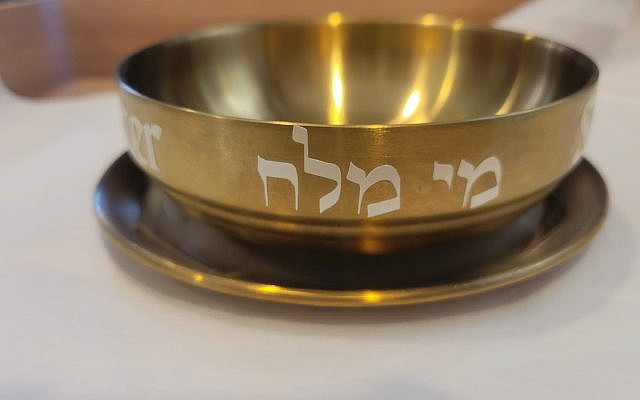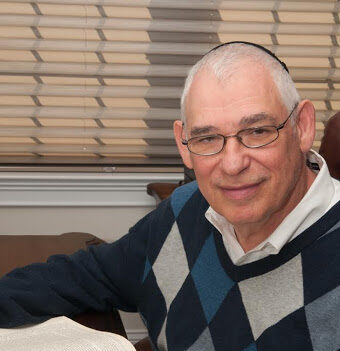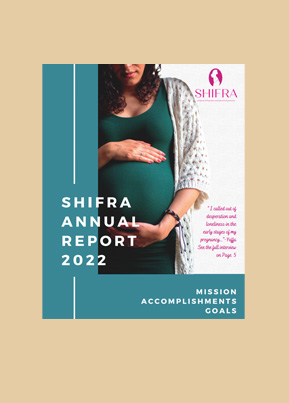Even in our darkest moments of despair, we Jewish people know that the tears, no matter how many we shed, are not the end of our story.
Special for Salt Water, SHIFRA Major Donor Gift. (courtesy)
You’ve sat at every seder table for more than a thousand years without demanding any attention for yourself. You hold the salt water — the tears we taste when we dip our parsley or potato.
Never before have I realized how much you have to hold.
Even those of us who haven’t lost our best friend or our father to Hamas, those of us whose child has not been taken captive, those of us who didn’t have to recover a baby’s burned body, we still have been tasting many tears since October.
Tears began when humans introduced chaos onto this magnificent world — refusing to be their brothers’ keeper, God responding, “The voice of your brother’s blood screams to me from the ground” (Genesis 4:10).
Apparently, God couldn’t teach humans to be good by observing nature or taking a philosophy course.
God chose Abraham and Sarah because truthfulness, goodness, and kindness must be cultivated inside a family and radiate out. From their children modeling lovingkindness, the whole world could receive a blessing.
Easier said than done. Some say the reason we dip the potato in your waters is to remind us of when Joseph’s brothers sold him and dropped his coat in goat’s blood to cover their sin.
When Jacob saw the coat dipped in blood, Jacob cried and refused to be consoled.
This Pesach, we also refuse to be consoled. We refuse to be consoled and accept the unacceptable. We refuse to let evil win and refuse to give up hope.
We know that the tears, even in our darkest moments of despair, are not the end of the story.
Judah repented, and Joseph forgave. He wept as he reunited with his brothers and held his father close again.
Enslaved, not free, Israelites held the first seder. It was the night before the Exodus, and they first dipped their Pesach offering in their maror.
God commanded them to remember the story even before they witnessed the ending.
We are in the middle of our story and must remember the ending. We are being reborn — a tiny nation, but a giant family.
When we tell the story of the Exodus, we use the exact wording (Deuteronomy 26:25) that we used when we brought the first fruits of gratitude offering at the Beit Hamikdash (Temple).
We choose gratitude for the end of our story, even when we live in the middle.
Because while you initially hold the salty waters, dear bowl, by the end of the story, they will part.
You saved my soul from death, my eyes from tears, my feet from stumbling’ (PSALM 116:8).









